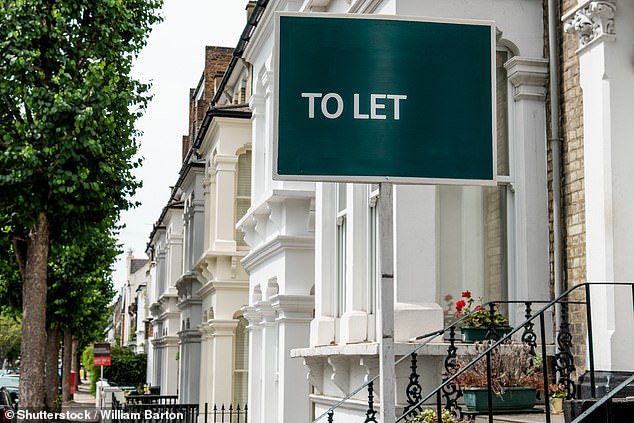Tenants’ gas and electricity bills have reached the equivalent of paying an extra month’s rent each year, new data suggests.
Their energy bills have reached their highest level in seven years, according to Hamptons rental agents.
However, this is likely to mark a recent high given the drop in the energy price cap from April 1, with further drops expected later in the summer.
Average annual gas and electricity bills amounted to £1,331 for a typical rental home in Britain.
Seven years ago, the average rent was £953 a month, and annual gas and electricity bills were £998.
Between then and the first quarter of 2022, rents continued to rise while energy bills fell in cash terms until wholesale prices soared in early 2022.
This meant that annual energy bills accounted for 65 percent of the average monthly rent in the first three months of 2022.
This percentage increased to 88 percent in the first three months of 2023 and to 100 percent in 2024, when energy prices peaked.
Over the year to the first quarter of 2024, average annual gas and electricity bills amounted to £1,331 for a typical rental home, a figure that is £1 more than the average monthly rent.

The average tenant’s gas and electricity bill is just £1 more than the average monthly rent in Britain.
Hamptons suggested that rented homes tend to be smaller and slightly more energy efficient than a typical home ownership.
As such, energy bills for rented homes tend to be lower than the national average.
Over the past decade, starting in 2015, rents have increased by 54 percent, while energy bills have increased by 46 percent.
However, almost all of this increase in gas and electricity bills has occurred over the past two years.
Until then, energy bills had been mainly falling in both cash and real terms.
This means that in total, tenants are paying an extra £5,993 each year on rent and energy bills compared to ten years ago.
But the energy element is expected to have reached its peak.
According to Cornwall Insight, energy bills are expected to fall by 17.4 per cent next year.
Like energy costs, most of the rent growth has occurred since the first three months of 2022.
Hamptons attributed this to rising interest rates and broader inflation, causing landlords to look to raise rents.
The agent said if the projections are correct, it would mark a return to “normal”, where average annual energy bills make up 80 per cent of the average monthly rent.

The average rental growth rate continues to slow, with average prices increasing by 6.7 over the past 12 months to March 2024.
Dr Craig Lowrey, of Cornwall Insight, said: “Over the last three years, households across the country have battled rising energy bills, on top of the wider challenges caused by the rising cost of life.
‘However, with April marking a two-year low for the price cap and our forecasts indicating a further decline from July, households are finally getting some much-needed relief.
‘While it is important to be positive, we must recognize that these energy costs remain substantially higher than pre-energy crisis levels, compounding financial strain alongside other expenses.
‘While there are many competing priorities for the government, as its additional support measures have ceased, the government needs to look at what it can offer low-income families to support them with their energy bills.
“Whether through direct support or programs such as social tariffs, it is clear that a long-term solution is needed to help struggling households.”
It comes as the average rental growth rate continues to slow, with average prices increasing by 6.7 over the last 12 months to March 2024.
It means rental growth has almost halved since peaking at 12 per cent in August 2023.
However, average rents remain 31 percent above their pre-pandemic average.

